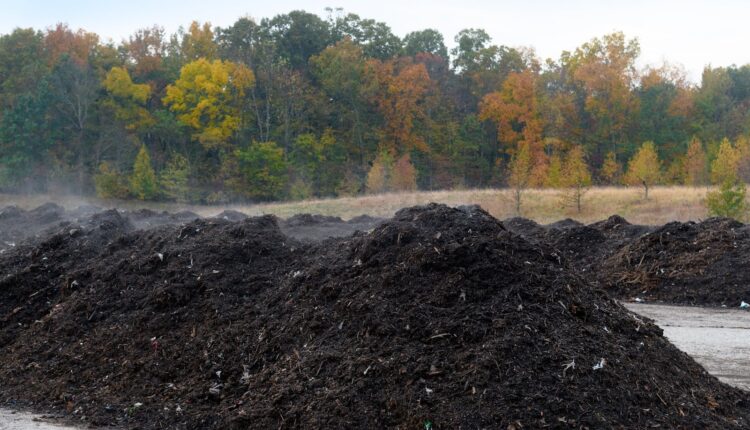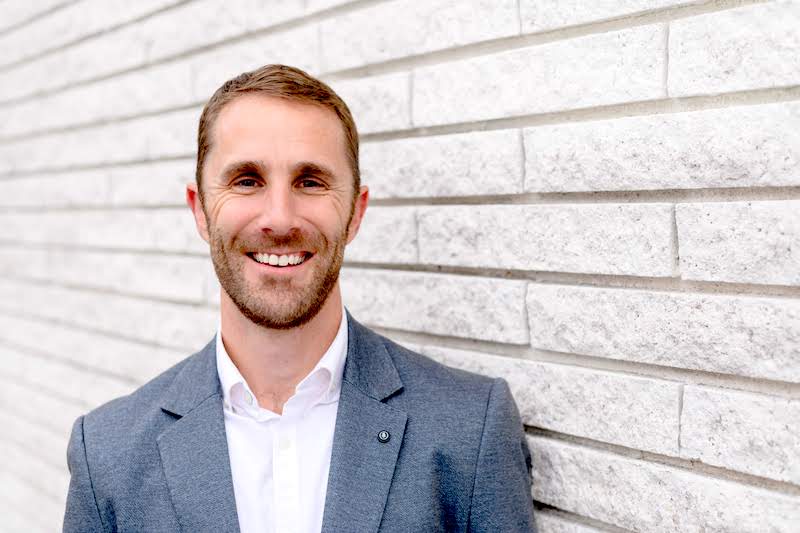
Ben Parry: How composting can become mainstream in the District
Humans are a selfish species. We are failing to protect the planet and the tens of millions of species that inhabit Earth along with us.
Where human self-interest and free markets fail, we need legislation to enforce our obligations to the planet. The recent passage of the Zero Waste Omnibus Amendment Act shows the District has recognized the need to reduce the waste we generate. Organic waste management is an important element of this legislation, which can help to maintain our local environment for future generations.

Rescuing organic matter from the waste stream to support new life should be a fundamental obligation. Instead, many people still opt to throw organic material in the trash. This happens, in part, because most people aren’t aware of the true value and ease of organic recycling. In the United States, 54 million tons of food goes to the landfill, to the incinerator, or down the drain annually, according to national sustainability nonprofit ReFED. Composting is the solution with the biggest potential to redirect waste; ReFED estimates that 13.8 million tons could be diverted via composting alone.
Although some prospective composters do have concerns about the process based on preconceived notions about things like odor and pests, everyone has to put their food scraps somewhere — whether or not you compost your organic waste. Traditionally, organic waste is integrated with non-compostable garbage. This setup is not less smelly than composting, and it can actually attract more pests than a compost bin with a strong latch would. When food scraps are extracted from the rest of the waste stream, your trash isn’t as odorous or voluminous.
The District’s zero waste act, which recently became law, takes a positive step in the right direction. The mayor’s plan for organics management, required by January 2023 under the legislation, needs to point us farther down that path by including effective tactics to manage organic waste. Simply accepting food waste citywide is not enough to ensure success.
In San Francisco, where composting has been mandatory since 2009, more than 80% of all discarded waste is diverted from landfills. Today, San Francisco residents compost more than they recycle; however, composting didn’t become the norm overnight. In order to incentivize the shift to composting, San Francisco set the rates for trash collection higher than those for recycling and composting until residents incorporated the process into their everyday life. On top of zero waste legislation, local officials used a variety of tactics including multilingual educational programs to ensure that composting became mainstream.
Other large cities have struggled to replicate San Francisco’s success. In New York City specifically, the composting initiative that has been available to residents on a voluntary basis for the past decade crumbled over the course of the past two years. Although the program faced huge obstacles brought on by COVID-19, composting in NYC was not performing particularly well prior to 2020. In 2017 the program collected only about 1.2% of the city’s organic waste. Although some local officials there have advocated for a composting mandate, by 2020 only 10% of residents were using the city-provided composting bins, and the program’s funding was reduced at the start of the pandemic. Shreds of the original composting plan are still hanging on by a thread, but without big policy changes New York will be unable to achieve anything resembling widespread organics recycling.
The District has the opportunity to learn three important lessons from the experiences of these other cities.
First, to incentivize widespread composting, it is essential that the collection costs for recycling and composting remain lower than those for trash. A U.S. Environmental Protection Agency study found that communities with pay-as-you-throw policies generate 49% less waste than do communities that spread the cost of trash collection evenly regardless of whether a resident generates large amounts of waste or none at all. San Francisco’s policy recognizes that the societal costs of landfills have not truly been reflected in the price of waste collection. In DC this would likely save taxpayers money because for years the city has been losing money by undercharging private waste haulers.
Secondly, government policies must foster an environment where mission-driven organics recycling businesses and entrepreneurs can thrive and increase the number of composting facilities in the region. The Washington area as a whole has a variety of composting businesses that want to expand their enterprises to reduce waste and improve local soil. Increasing the number of facilities able to transform organic waste into a biologically stable product is important because the DMV currently has the capacity to compost only about 20% of the organic waste produced by local residents. In order to be prepared for the influx of composting that would come with a mandate, facilities of all sizes need to be created. These new facilities would bring green jobs to the Washington area.
Finally, building a sustainable organics recycling program is not possible without education around the importance of composting. As we saw in San Francisco, integrating educational programs into schools and community centers solidifies composting as a necessity in the minds of our youth, helping ensure composting thrives for decades to come.
Let’s kick-start the transition to widespread composting in the District. We need to act quickly to save the planet, and we need a well-conceived plan to get there.
Ben Parry is CEO of the Compost Crew.
About commentaries
The DC Line welcomes commentaries representing various viewpoints on local issues of concern, but the opinions expressed do not represent those of The DC Line. Submissions of up to 850 words may be sent to editor Chris Kain at chriskain@thedcline.org.


Comments are closed.